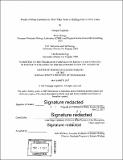| dc.contributor.advisor | Alan Paige Lightman. | en_US |
| dc.contributor.author | Guglielmi, Giorgia | en_US |
| dc.contributor.other | Massachusetts Institute of Technology. Graduate Program in Science Writing. | en_US |
| dc.coverage.spatial | e-it--- | en_US |
| dc.date.accessioned | 2017-12-20T18:16:08Z | |
| dc.date.available | 2017-12-20T18:16:08Z | |
| dc.date.copyright | 2017 | en_US |
| dc.date.issued | 2017 | en_US |
| dc.identifier.uri | http://hdl.handle.net/1721.1/112887 | |
| dc.description | Thesis: S.M. in Science Writing, Massachusetts Institute of Technology, Department of Comparative Media Studies/Writing, 2017. | en_US |
| dc.description | Cataloged from PDF version of thesis. | en_US |
| dc.description | Includes bibliographical references (pages 21-28). | en_US |
| dc.description.abstract | In 2013, the plant pathogen Xylellafastidiosa was found in Salento, Italy's most southeastern region, famous for its centuries-old olive trees. Spread by insects, the bacterium is decimating those trees and compromising the production of olive oil, which accounts for a considerable part of the national output. Since there are no means to cure sick plants, the authorities ordered emergency measures to contain the disease, which included removing infected trees and using pesticides against insect vectors. In Salento, these measures aroused intense public opposition. Following a vilifying media campaign and under public pressure, an Italian court halted the containment measures and accused the scientists who detected Xylella as having caused the problem in the first place. The absence of a plan to contain the epidemic, the criminal charges against the scientists, and the public resistance due to inaccurate information may fuel the spread of the disease to the rest of Italy and eventually to the entire Mediterranean basin, with catastrophic economic consequences. | en_US |
| dc.description.statementofresponsibility | by Giorgia Guglielmi. | en_US |
| dc.format.extent | 28 pages | en_US |
| dc.language.iso | eng | en_US |
| dc.publisher | Massachusetts Institute of Technology | en_US |
| dc.rights | MIT theses are protected by copyright. They may be viewed, downloaded, or printed from this source but further reproduction or distribution in any format is prohibited without written permission. | en_US |
| dc.rights.uri | http://dspace.mit.edu/handle/1721.1/7582 | en_US |
| dc.subject | Comparative Media Studies. | en_US |
| dc.subject | Graduate Program in Science Writing. | en_US |
| dc.title | Media of Mass Destruction : how fake news is killing Italy's olive trees | en_US |
| dc.title.alternative | How fake news is killing Italy's olive trees | en_US |
| dc.type | Thesis | en_US |
| dc.description.degree | S.M. in Science Writing | en_US |
| dc.contributor.department | Massachusetts Institute of Technology. Graduate Program in Science Writing | en_US |
| dc.identifier.oclc | 1015183046 | en_US |
